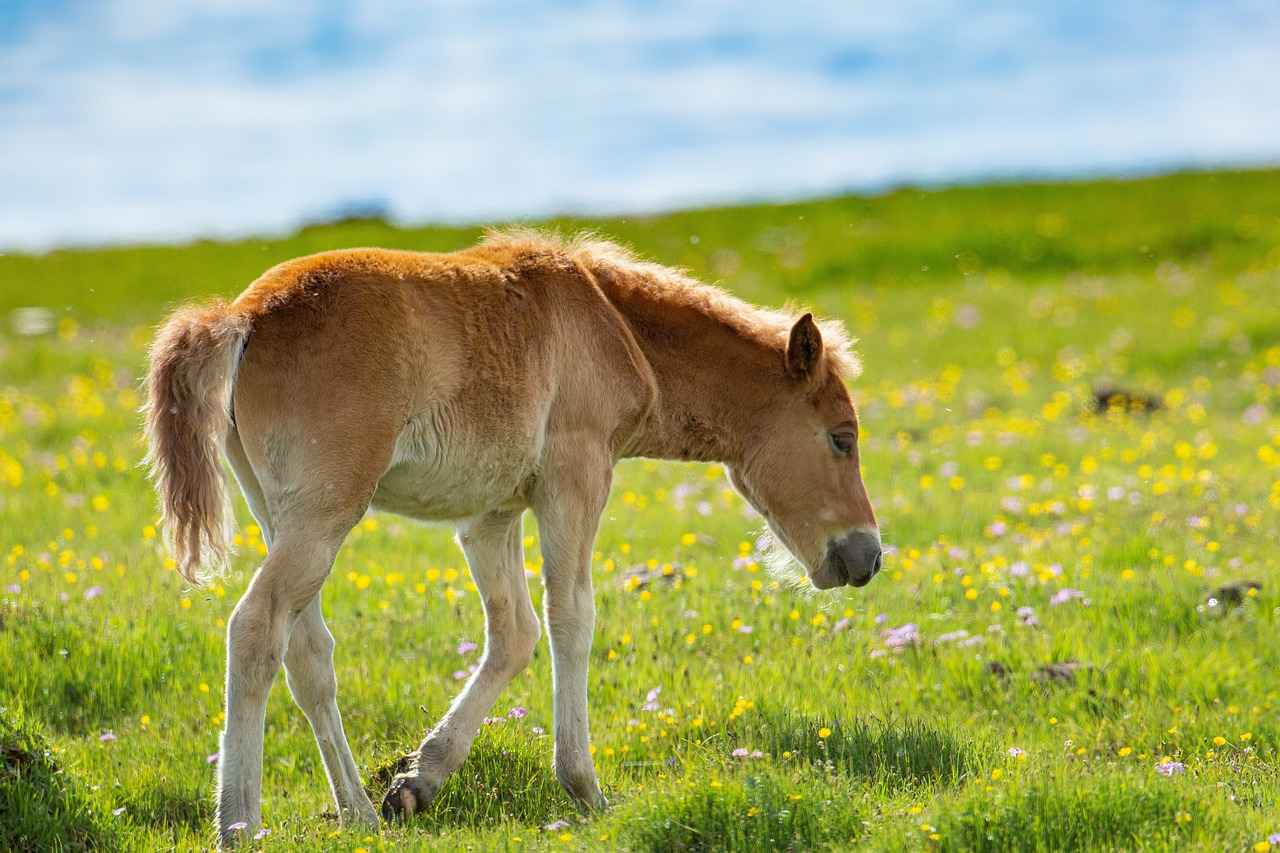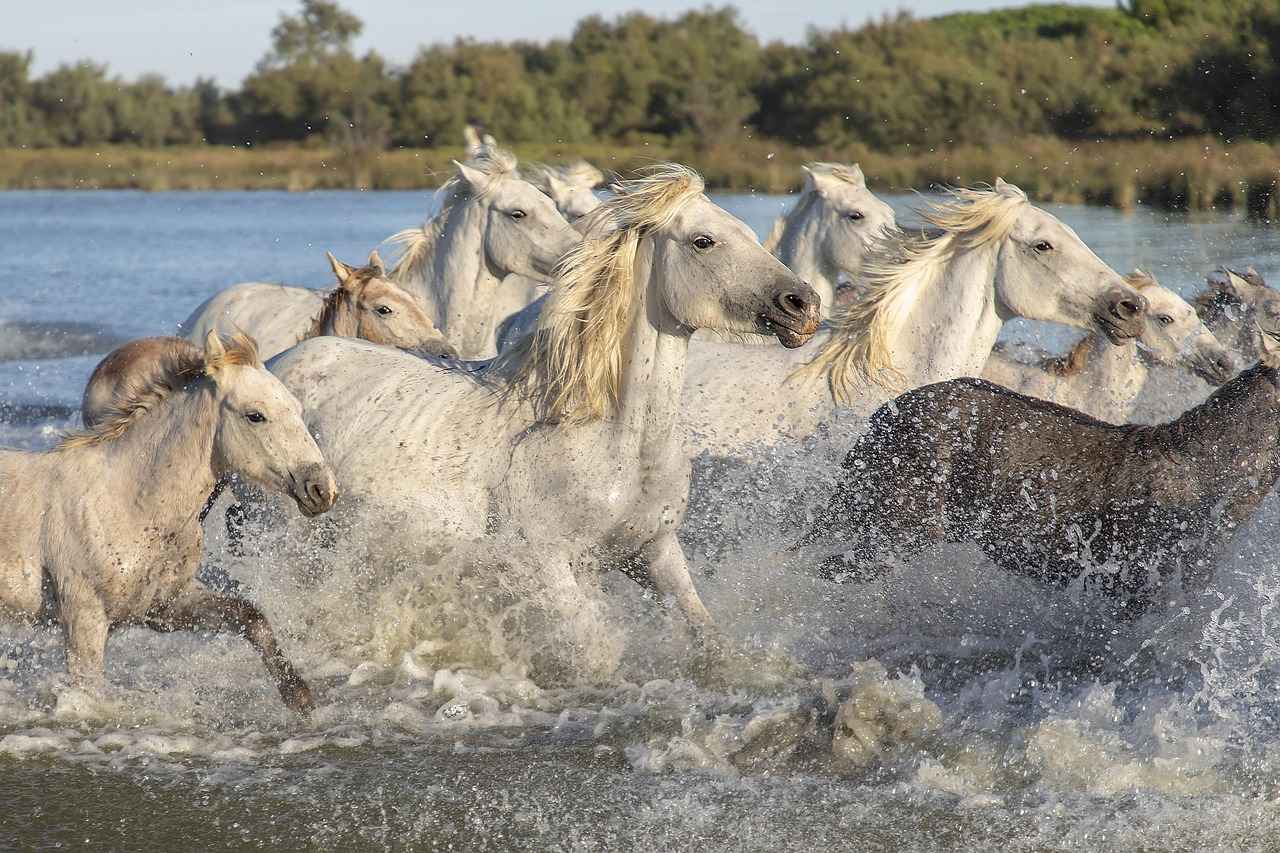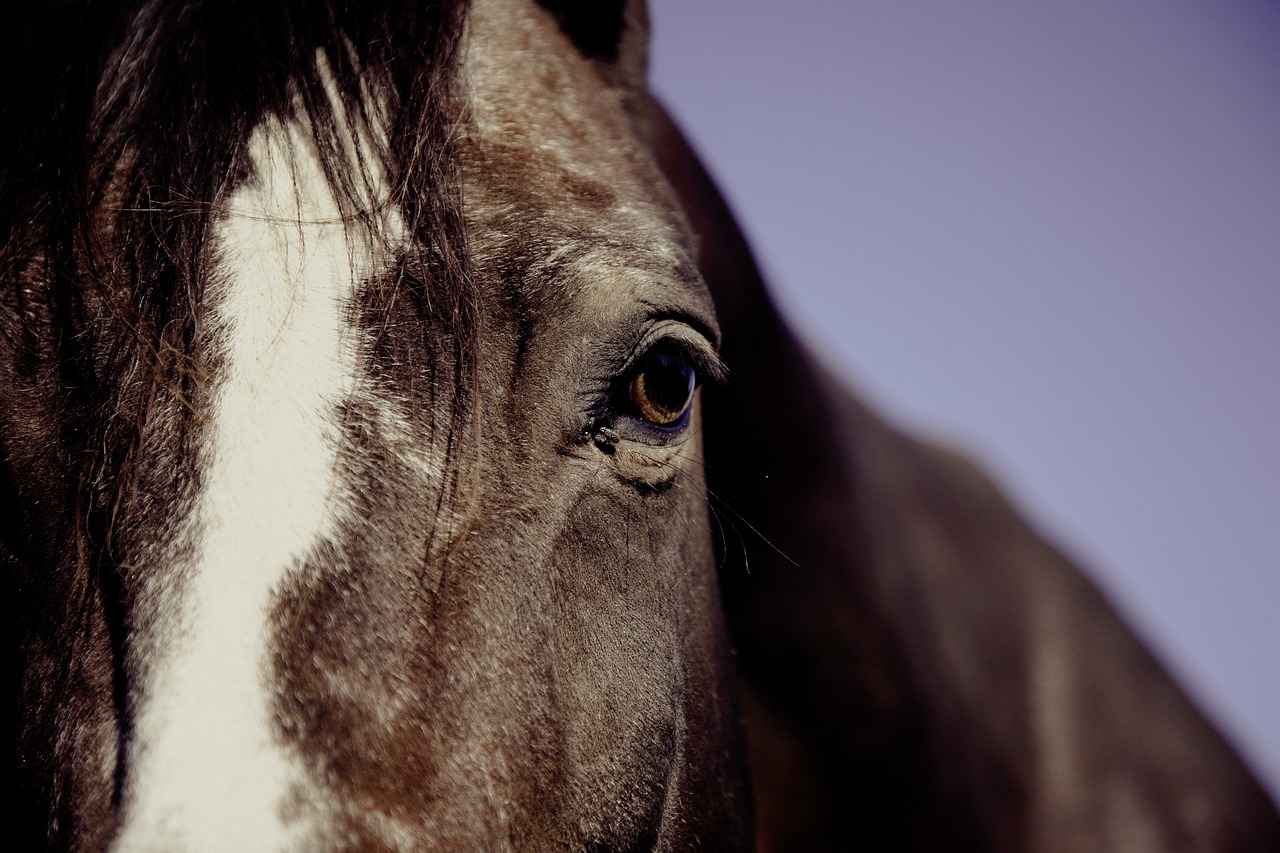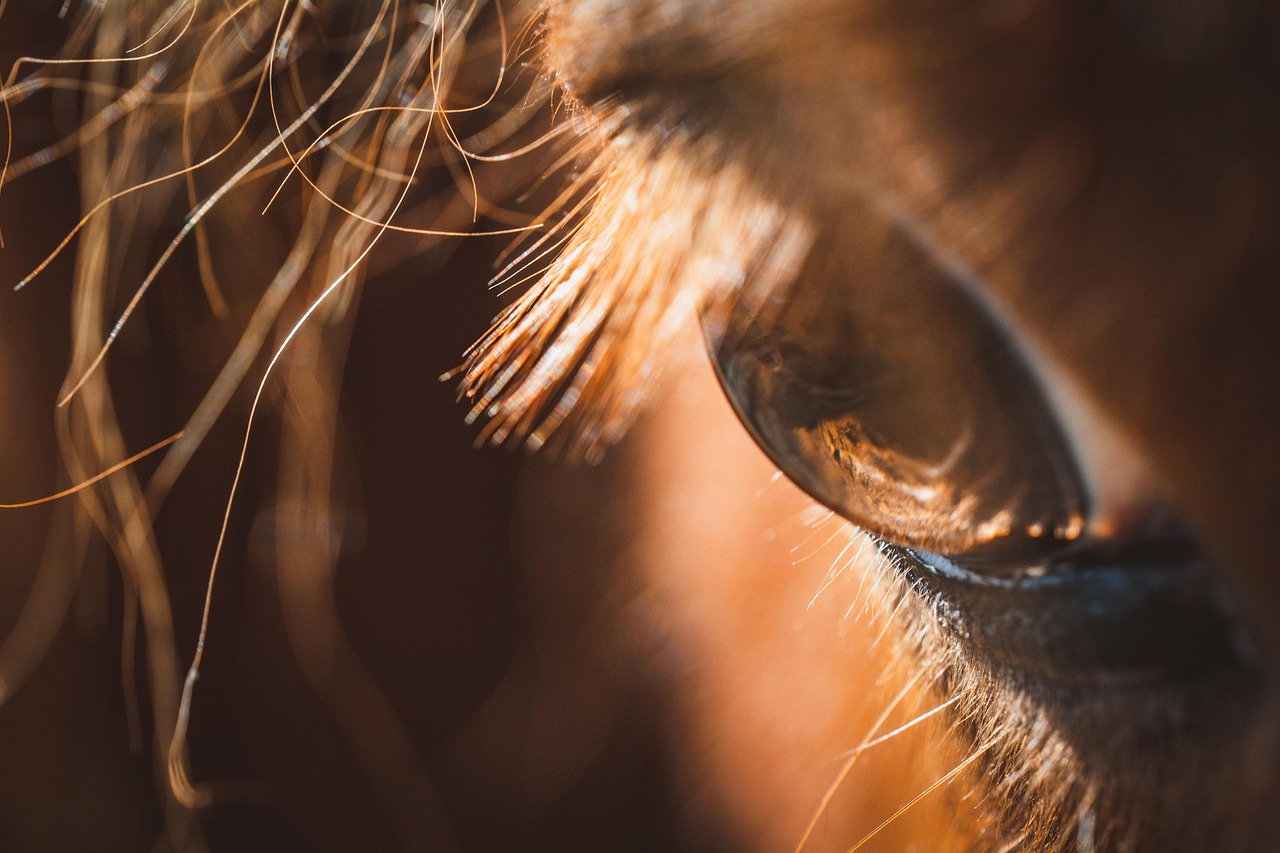Understanding the costs associated with boarding a horse is essential for any prospective horse owner. This article delves into the various factors influencing horse boarding expenses, including the types of facilities available, the services provided, and regional pricing variations. By the end, you will have a comprehensive overview that can help you make informed decisions regarding horse care.
Horse boarding facilities can vary widely, and knowing the options available is crucial. Here are the most common types:
- Full-Service Boarding: These facilities offer comprehensive care, including feeding, grooming, and exercise. They typically come with amenities like indoor arenas and turnout paddocks.
- Pasture Boarding: This option provides horses with access to pasture, allowing them to roam freely. It is often more affordable but may not include as many services.
- Self-Care Boarding: In this arrangement, the horse owner is responsible for the daily care of their horse, which can significantly reduce costs.
The average cost of horse boarding varies based on location and the type of facility. Generally, you can expect to pay:
| Type of Boarding | Average Monthly Cost |
|---|---|
| Full-Service | $500 – $1,500 |
| Pasture Boarding | $200 – $600 |
| Self-Care | $100 – $400 |
Several key factors can affect the cost of boarding a horse:
- Location: Urban areas often have higher prices due to demand, while rural regions may offer more economical options.
- Amenities: Facilities with more extensive amenities, such as riding arenas and heated barns, will typically charge higher fees.
- Services Offered: Additional services like grooming, training, and veterinary care can significantly impact overall costs.
Beyond monthly boarding fees, horse owners should anticipate other expenses:
- Veterinary Care: Regular check-ups and vaccinations are essential for maintaining your horse’s health.
- Farrier Services: Routine hoof care is necessary and can add to your monthly expenses.
- Insurance: Horse insurance can protect against unforeseen circumstances, but it also adds to the overall cost.
Selecting a boarding facility is a critical decision that affects your horse’s well-being. Here are some tips to consider:
- Visit Multiple Facilities: Touring different barns can give you a sense of the environment and care provided.
- Ask Questions: Inquire about feeding schedules, turnout times, and emergency procedures.
- Check Reviews: Look for testimonials from other horse owners to gauge their experiences.
By taking the time to research and evaluate your options, you can find a boarding facility that meets both your budget and your horse’s needs. Understanding the various factors at play will empower you to make informed choices throughout your horse ownership journey.

What Are the Different Types of Horse Boarding Facilities?
Understanding the different types of horse boarding facilities is essential for anyone considering horse ownership. Each type of boarding facility offers unique features, services, and costs, making it crucial to choose the right one that meets both your needs and those of your horse.
- Full-Service Barns: These facilities provide comprehensive care, including feeding, grooming, and exercise. Owners can expect amenities such as indoor arenas, wash stalls, and professional staff available for training and care. This option is ideal for those who want minimal involvement in daily chores.
- Pasture Boarding: This more economical option allows horses to live in a natural setting, typically in large, grassy fields. While it offers less direct care, many pasture boarding facilities provide basic services like feeding and shelter. This is a great choice for owners looking for a more affordable option while still ensuring their horse’s well-being.
- Self-Care Facilities: In this arrangement, owners are responsible for the daily care of their horses, including feeding, grooming, and cleaning stalls. This option is often less expensive but requires a significant time commitment from the owner.
- Training Facilities: These specialized barns focus on training and riding lessons. They often have experienced trainers on-site and provide a structured environment for both horse and rider. This option is perfect for competitive riders or those looking to improve their skills.
- Retirement Farms: Designed for older or retired horses, these facilities prioritize comfort and health. They typically offer large pastures and specialized care tailored to the needs of aging horses. Owners can rest assured their retired companions are in a peaceful environment.
When choosing a boarding facility, it’s essential to consider the specific needs of your horse, your budget, and the level of care you wish to provide. Each type of facility has its advantages and disadvantages, so evaluating them based on your situation will help ensure a good fit.
Additionally, visiting potential facilities in person can provide valuable insights into the conditions and care standards. Look for cleanliness, staff professionalism, and the overall atmosphere to gauge whether it aligns with your expectations.
In summary, understanding the different types of horse boarding facilities available is crucial for prospective horse owners. By carefully considering your options and what each facility offers, you can make an informed decision that benefits both you and your horse.

How Much Does Horse Boarding Cost on Average?
When considering horse ownership, one of the most significant aspects to evaluate is horse boarding costs. Understanding the financial commitments involved is crucial for any prospective horse owner. The average cost of horse boarding can vary significantly based on location, amenities, and the type of boarding arrangement selected. In this section, we will break down the typical price ranges for different types of boarding facilities across various regions, providing valuable insights for your decision-making process.
The average cost of horse boarding typically ranges from $200 to $2,000 per month. This wide range is influenced by several factors, including geographical location and the specific services offered at the facility. Below, we explore the various types of boarding arrangements and their associated costs:
- Pasture Boarding: This is often the most affordable option, with prices ranging from $200 to $600 per month. Horses are kept in a pasture with minimal services provided.
- Self-Care Boarding: Owners are responsible for their horses’ daily care, including feeding and grooming. Costs usually range from $300 to $800 per month.
- Full-Service Boarding: This option includes comprehensive care, such as feeding, grooming, and exercise. Prices can range from $500 to $2,000 per month, depending on the facility’s amenities.
In metropolitan areas, prices tend to be on the higher end of the spectrum due to increased demand and higher operating costs. Conversely, rural areas often offer more affordable options, with pasture boarding being particularly popular.
Several factors impact the overall cost of horse boarding:
- Location: Urban centers typically have higher prices due to demand, while rural areas may provide more budget-friendly options.
- Amenities: Facilities with indoor arenas, high-quality feed, and specialized care services will likely charge more.
- Services Included: Understanding what services are included in the boarding fee, such as veterinary care and farrier services, is essential for budgeting.
It’s important to thoroughly research local facilities and their offerings. For example, some stables might charge extra for specialized care or additional services, which can significantly affect your overall costs.
In addition to monthly boarding fees, horse owners should be aware of potential extra expenses:
- Veterinary Care: Routine health check-ups, vaccinations, and emergency treatments can add substantial costs.
- Farrier Services: Regular hoof care is essential and can range from $50 to $150 per visit, depending on the services required.
- Insurance: Horse insurance can help mitigate unexpected costs but is an additional monthly expense that should be factored into your budget.
Being prepared for these financial responsibilities is crucial for any horse owner. Understanding the full scope of costs will help you make informed decisions about your horse’s care.
Selecting the right boarding facility is vital for your horse’s well-being. Consider the following tips:
- Visit Facilities: Touring potential boarding facilities allows you to assess the environment and care standards.
- Ask Questions: Inquire about feeding schedules, turnout times, and emergency procedures to gauge the level of care provided.
- Read Reviews: Recommendations from other horse owners can provide invaluable insights into the quality of care and services offered.
By taking the time to evaluate your options carefully, you can find a boarding facility that meets both your budget and your horse’s needs.
What Factors Influence Boarding Costs?
When it comes to the cost of boarding a horse, several key factors come into play that can significantly influence pricing. Understanding these factors is essential for horse owners seeking the best options for their beloved animals. This article delves into the various elements that affect boarding costs, helping owners make informed decisions.
The geographical location of a boarding facility is one of the most significant determinants of cost. Urban areas often experience higher demand for boarding services, leading to elevated prices. Conversely, rural locations typically offer more affordable options due to lower demand and operational costs. For example:
- Urban Areas: Higher amenities and convenience but at a premium price.
- Rural Areas: More spacious options and often lower fees, but potentially fewer services.
Amenities provided at a boarding facility can greatly influence costs. Facilities that offer indoor arenas, turnout areas, and specialized feeding schedules tend to charge more. Owners should evaluate what amenities are essential for their horses’ well-being. Consider the following:
- Indoor Arenas: Useful for year-round training but can increase fees.
- Pasture Access: Essential for a horse’s mental health, often included in basic packages.
Boarding fees can vary widely based on the services included. Common services that may be covered include:
- Feeding: Regular feeding schedules are usually included, but special diets may incur additional costs.
- Grooming: Some facilities offer grooming as part of their service, while others charge separately.
- Veterinary Care: Routine veterinary checks may be included, but emergency care typically is not.
In addition to monthly boarding fees, horse owners should be aware of potential additional costs that can arise. These may include:
- Veterinary Care: Routine check-ups and vaccinations are essential for maintaining health.
- Farrier Services: Regular hoof care is crucial and can add to overall expenses.
- Insurance Costs: Horse insurance can help mitigate unexpected expenses but is an additional cost to consider.
Choosing the right boarding facility involves careful consideration of various factors, including cost, services, and location. Owners should ask specific questions when visiting facilities, such as:
- What services are included in the boarding fee?
- How often are horses turned out to pasture?
- What is the facility’s policy on veterinary care and emergencies?
Gathering insights from other horse owners through reviews and recommendations is also invaluable. Their experiences can guide your decision-making process effectively.
In summary, understanding the factors that influence horse boarding costs—such as location, amenities, and services—can empower owners to make informed choices that best suit their horses’ needs and their budgets.
Location: How Does It Affect Boarding Prices?
When it comes to horse boarding, one of the most significant factors influencing costs is geographical location. Understanding how location affects boarding prices can help prospective horse owners make informed decisions and budget effectively. In this section, we will delve deeper into the complexities of location and its impact on boarding costs.
In urban areas, the demand for horse boarding facilities is often much higher due to the concentration of potential horse owners. This increased demand leads to higher prices for boarding services. Urban facilities may offer additional amenities, such as indoor arenas or 24/7 access, which can further elevate costs. For example:
| Facility Type | Average Monthly Cost |
|---|---|
| Urban Full-Service Barn | $800 – $1,500 |
| Urban Pasture Boarding | $600 – $1,200 |
Conversely, rural areas typically offer more affordable boarding options. The lower demand and availability of land often result in reduced prices. Rural boarding facilities may not have the same level of amenities as urban ones, but they can provide a more natural environment for horses, which many owners prefer. Here’s a look at typical costs in rural settings:
| Facility Type | Average Monthly Cost |
|---|---|
| Rural Full-Service Barn | $400 – $800 |
| Rural Pasture Boarding | $200 – $500 |
Beyond urban and rural classifications, regional differences also play a crucial role in determining boarding costs. For instance, areas with a high concentration of equestrian activities, such as Kentucky or California, may see elevated prices due to the popularity of horse riding and training in those regions. In contrast, states with fewer equestrian facilities may offer lower prices.
The overall cost of living in a region can also influence horse boarding prices. In regions where living expenses are high, boarding costs tend to follow suit. Owners should consider not only the direct costs of boarding but also how these expenses fit into the broader economic landscape of the area.
Another factor to consider is the accessibility of the boarding facility. Facilities that are conveniently located near major roads or urban centers may charge higher fees due to the added convenience they provide to owners. Conversely, facilities that are more remote may offer lower prices but could require more travel time for owners.
In conclusion, understanding how location affects horse boarding prices is essential for prospective horse owners. By considering factors such as urban versus rural settings, regional variations, cost of living, and accessibility, owners can make informed decisions that align with their budget and their horse’s needs. Ultimately, the right boarding facility will strike a balance between cost, convenience, and quality of care.
Amenities: What Should You Expect?
When considering horse boarding, understanding the amenities available at a facility is crucial for both the horse’s well-being and the owner’s budget. The types of amenities offered can significantly influence the overall costs associated with boarding. Here, we will delve into the essential features you should expect from a boarding facility and how they can affect your decision.
Horse boarding facilities can vary widely in the amenities they provide. Here are some common features you might encounter:
- Indoor Arenas: These allow for year-round riding and training, irrespective of weather conditions. Having access to an indoor arena can be a major advantage for training and exercise.
- Turnout Areas: Adequate turnout space is essential for a horse’s physical and mental health. Facilities that offer large, safe turnout areas allow horses to exercise freely, which can be a significant factor in their overall happiness.
- Feeding Schedules: A well-structured feeding regimen is vital for maintaining a horse’s health. Facilities that provide individualized feeding plans based on the horse’s specific needs can be more beneficial.
- Grooming and Care Services: Some facilities include grooming services, which can save owners time and ensure that their horses are well cared for.
- Veterinary Services: Access to on-site veterinary care can be a significant advantage, especially in emergencies. Facilities that have partnerships with veterinarians can provide peace of mind.
The presence of these amenities can greatly influence the cost of boarding. For example, facilities with indoor arenas or extensive grooming services typically charge higher fees compared to basic pasture boarding options. Owners should weigh the benefits of these amenities against their budgets.
When selecting a boarding facility, consider the following:
- Facility Condition: Inspect the overall condition of the barns, arenas, and turnout areas. Well-maintained facilities often indicate a higher standard of care.
- Staff Experience: Knowledgeable staff can make a significant difference in the quality of care your horse receives. Inquire about their experience and qualifications.
- Community and Environment: A positive atmosphere among staff and other horse owners can enhance your boarding experience. Look for facilities that foster a supportive community.
It’s essential to be aware of potential hidden costs that may arise from certain amenities. For instance, while a facility may offer an indoor arena, there could be additional fees for its use during specific hours. Always clarify what is included in the boarding fee and ask about any potential extra charges.
In summary, understanding the amenities offered at a boarding facility is crucial for making an informed decision. By carefully evaluating these features and their associated costs, horse owners can find a boarding solution that best fits their needs and budget.
What Services Are Typically Included in Boarding Fees?
When considering the costs associated with horse boarding, it is crucial to understand the services that are included in the boarding fees. Boarding fees can vary significantly based on the type of facility, its location, and the specific services offered. Here, we will delve deeper into the common services typically included in these fees, ensuring that horse owners are well-informed before making a decision.
Most boarding facilities offer a variety of services that are essential for the care and well-being of your horse. Understanding what is included in the boarding fees can help you avoid unexpected costs later on. Here are some common services that you can expect:
- Feeding: This is often the most basic service provided. Horses typically require a consistent feeding schedule, and most facilities will provide hay and grain as part of the boarding fee. It’s important to inquire about the quality and type of feed used, as this can affect your horse’s health.
- Grooming: Some facilities include basic grooming services, which may encompass brushing, hoof cleaning, and mane and tail care. However, more extensive grooming services may incur additional costs, so it’s advisable to clarify what is included.
- Veterinary Care: Many boarding facilities have arrangements with local veterinarians for routine check-ups and vaccinations. While some basic veterinary care might be included, more specialized treatments or emergency care could be charged separately.
- Turnout: This refers to the practice of allowing horses outside for exercise and socialization. Regular turnout is crucial for a horse’s mental and physical health. Ensure you ask how often your horse will be turned out and in what type of environment.
- Access to Facilities: Depending on the facility, you may have access to indoor arenas, riding trails, and other amenities. These facilities can greatly enhance your riding experience and your horse’s training opportunities.
While these services are common, it is essential to note that they can vary significantly from one facility to another. Some high-end facilities may offer additional services such as massage therapy, specialized training, or even equine swimming pools, which can enhance your horse’s overall well-being and performance.
Furthermore, it is advisable to carefully read the contract or boarding agreement to understand what services are included in the monthly fee. This will help you budget effectively and avoid any surprises down the line.
In conclusion, understanding the services included in boarding fees is vital for horse owners. By asking the right questions and researching different facilities, you can ensure that your horse receives the best possible care while also managing your budget effectively.

Are There Additional Costs to Consider?
When considering the cost of boarding a horse, it is essential for owners to recognize that the monthly boarding fees are just the beginning. There are several potential additional costs that can arise during the boarding process. Understanding these expenses is crucial for effective budgeting and ensuring your horse receives the best possible care.
- Veterinary Care: Regular veterinary check-ups, vaccinations, and emergency care can add significant costs. Many facilities do not include veterinary services in their boarding fees, so it’s important to budget for these expenses separately.
- Farrier Services: Horses require regular hoof care, typically every 6 to 8 weeks. Farrier costs can vary based on the type of shoeing required and the horse’s specific needs.
- Feed and Supplements: While basic feeding may be included in boarding fees, specialized diets or supplements often come at an additional cost. Owners should inquire about what is included in the boarding package.
- Training and Riding Lessons: If you wish to have your horse trained or take riding lessons, these services usually incur extra fees. It’s advisable to check the rates for training programs offered at the facility.
- Transport Fees: If you need to transport your horse for competitions or vet visits, transportation costs can quickly add up. Consider these when planning your horse’s activities.
- Insurance: Horse insurance is an important consideration for owners. Monthly premiums can vary based on coverage levels, and unexpected emergencies can lead to significant out-of-pocket expenses.
- Facility Upgrades: Some boarding facilities may charge extra for access to premium amenities, such as indoor arenas or specialized care options.
Being proactive about potential costs can help horse owners avoid financial strain. Here are some practical steps:
- Create a Budget: Outline all expected monthly costs, including boarding, veterinary care, and farrier services. Leave room for unexpected expenses.
- Emergency Fund: Set aside a specific amount monthly to build an emergency fund for unplanned veterinary visits or other urgent needs.
- Research and Compare: Investigate various boarding facilities to understand what is included in their fees. This will help you make informed decisions and avoid surprises.
Clear communication with the boarding facility can prevent misunderstandings regarding costs. Owners should:
- Discuss all potential costs upfront, including any additional fees for services.
- Ask about the facility’s policies on veterinary care and emergency procedures.
- Inquire about any extra charges for specialized services or amenities.
In conclusion, understanding the full scope of costs associated with horse boarding is vital for any horse owner. By being aware of potential additional expenses and preparing for them, owners can ensure a smoother and more enjoyable experience for both themselves and their horses.
What Are the Costs for Veterinary Care and Farrier Services?
When it comes to horse ownership, understanding the financial responsibilities is crucial. One of the most significant aspects of this is the cost associated with routine veterinary care and farrier services. These services are not just optional; they are essential for maintaining the health and well-being of your horse. Knowing these costs can help owners budget effectively for their horse’s overall care while boarding.
Routine veterinary care encompasses a variety of services, including vaccinations, dental check-ups, and annual health examinations. On average, horse owners can expect to spend between $300 to $600 annually on veterinary services, depending on the horse’s health and specific needs. Vaccinations alone can cost around $100 to $200 each year, while dental care may add another $150 to $300 annually. Regular check-ups are vital in preventing more severe health issues down the line, making these costs a necessary investment.
Farrier services are equally important, as they ensure that your horse’s hooves are healthy and properly maintained. The cost of farrier services can vary significantly based on the type of shoeing required and the frequency of visits. On average, horse owners can expect to pay between $30 to $150 per visit. If your horse requires specialized shoeing or has specific hoof issues, costs can escalate to $200 or more per session. Most horses need to see a farrier every 6 to 8 weeks, meaning the annual cost can add up quickly, often reaching $600 to $1,200 per year.
- Preventative Care: Regular veterinary check-ups can catch health issues early, saving you money in the long run.
- Performance: Proper hoof care can enhance your horse’s performance and comfort.
- Longevity: Investing in routine care contributes to your horse’s overall longevity and quality of life.
To effectively budget for veterinary and farrier services, horse owners should consider creating a yearly financial plan. This plan should include:
- Estimated costs for routine veterinary visits
- Regular farrier appointments
- Emergency funds for unexpected health issues
By setting aside funds monthly, owners can alleviate the financial burden when these services are needed.
Neglecting routine veterinary and farrier care can lead to severe consequences for both the horse and the owner. Horses may develop chronic health issues that could have been prevented with regular check-ups. Additionally, poor hoof care can result in lameness or more serious conditions, leading to higher costs for treatment and recovery. In the end, the initial savings from skipping these services can lead to much larger expenses down the road.
In conclusion, understanding the costs associated with veterinary care and farrier services is essential for any horse owner. By budgeting effectively and prioritizing these services, owners can ensure their horses remain healthy and happy.
How Do Insurance and Emergency Expenses Factor In?
When it comes to horse ownership, financial preparedness is key. One of the most significant aspects of this financial readiness involves understanding the costs associated with horse insurance and potential emergency expenses. These factors can dramatically affect the overall cost of owning a horse, making it essential for every owner to be informed and equipped to handle unexpected situations.
Horse insurance serves as a safety net for owners, protecting against unforeseen circumstances that could lead to substantial financial loss. Policies typically cover a range of issues, including:
- Accidental injury or illness: Medical emergencies can arise at any time, and veterinary bills can quickly accumulate.
- Mortality: In the unfortunate event of a horse’s passing, insurance can help mitigate the financial burden.
- Liability: If your horse causes injury or damage to another person or property, liability insurance can protect you from costly legal fees.
Aside from insurance, horse owners should also prepare for various emergency expenses that can occur. Some common unexpected costs include:
- Veterinary emergencies: Conditions such as colic or injuries may require immediate veterinary attention, often leading to high costs.
- Farrier services: Regular hoof care is essential, but unexpected issues may necessitate additional visits from a farrier.
- Medications: Horses may require medications for various ailments, which can add to the overall expenses.
Preparation is crucial in managing the financial responsibilities that come with horse ownership. Here are some strategies to consider:
- Budgeting: Create a detailed budget that includes insurance premiums, routine care, and potential emergency expenses.
- Emergency fund: Set aside a specific amount each month to build an emergency fund dedicated to unexpected horse-related costs.
- Research: Investigate various insurance options and choose a policy that best fits your needs and your horse’s lifestyle.
Understanding the intricacies of horse insurance policies is vital. Here are some key points to keep in mind:
- Policy limits: Be aware of the maximum amount your policy will cover in case of a claim.
- Exclusions: Familiarize yourself with what is not covered under your insurance policy to avoid surprises.
- Premium costs: Evaluate the cost of premiums versus the coverage provided to ensure you are getting the best value.
In conclusion, managing the costs associated with horse ownership requires a proactive approach. By understanding the importance of horse insurance and preparing for potential emergency expenses, owners can ensure they are ready for the financial responsibilities that come with caring for their equine companions. This preparation not only protects the owner financially but also ensures the well-being of the horse.

How Can You Choose the Right Boarding Facility?
Choosing the right boarding facility for your horse is a critical decision that directly impacts its health, happiness, and overall well-being. With a variety of options available, it’s essential to assess each facility carefully to ensure it meets both your needs and those of your horse. This section will guide you through the key considerations when evaluating potential boarding options.
- Facility Condition: Examine the overall condition of the facility. Look for cleanliness, structural integrity, and safety features. A well-maintained barn is essential for your horse’s health.
- Turnout Options: Ensure that the facility offers adequate turnout space. Horses require daily exercise and socialization, so check if they have access to paddocks or pastures.
- Feeding and Care: Investigate the feeding regimen and care routines. Ask about the quality of hay and grain provided, as well as any special dietary needs your horse may have.
- Staff Qualifications: Inquire about the qualifications and experience of the staff. Knowledgeable caregivers are crucial for ensuring proper care and handling of your horse.
- Emergency Protocols: Understand the facility’s emergency protocols. Know how they handle veterinary emergencies and whether they have access to nearby veterinary services.
Different facilities offer varying levels of services that can affect your decision. Common services include:
| Service | Description |
|---|---|
| Feeding | Regular feeding schedules and quality feed options. |
| Veterinary Care | Access to routine and emergency veterinary services. |
| Farrier Services | Regular hoof care and maintenance. |
| Training | On-site training options for various disciplines. |
When touring potential boarding facilities, asking the right questions can provide valuable insights. Consider the following:
- What is the daily routine for horses at this facility?
- How often are horses turned out, and for how long?
- What are the protocols for health checks and vaccinations?
- Can you provide references from current boarders?
- What is the policy on visitors and communication with owners?
Reviews and recommendations from other horse owners can be instrumental in your decision-making process. Look for feedback on:
- Quality of care provided by the staff.
- Facility management and communication.
- Overall satisfaction of current boarders.
By taking the time to evaluate these factors and asking the right questions, you can ensure that you choose a boarding facility that is the perfect fit for both you and your horse. Remember, a well-suited boarding facility contributes significantly to your horse’s happiness and health.
What Questions Should You Ask When Visiting a Facility?
When it comes to boarding your horse, selecting the right facility is crucial to ensure your equine companion receives the best possible care. During your visits to potential boarding facilities, it is essential to ask the right questions to gain a comprehensive understanding of the services and care provided. Here are some key questions to consider:
- What is the daily routine for horses at this facility? – Understanding the daily schedule, including feeding, turnout, and exercise, can give you insight into how your horse will be cared for.
- What are the feeding protocols? – Inquire about the type of feed used, feeding frequency, and any special dietary needs that can be accommodated.
- How often are horses turned out? – Regular turnout is essential for a horse’s mental and physical well-being. Ask about the size and quality of turnout areas.
- What are the qualifications of the staff? – Knowing the experience and training of the staff can help you assess the level of care your horse will receive.
- How are health issues handled? – It’s important to understand the facility’s protocol for managing health concerns, including how they handle emergencies and routine veterinary care.
- What services are included in the boarding fee? – Some facilities may include grooming, veterinary care, and farrier services in their fees, while others may charge extra.
- Are there additional costs I should be aware of? – Clarify any potential extra expenses for services such as training, special feeds, or special care needs.
- Can I visit my horse at any time? – Knowing the facility’s visitation policy can help you maintain a connection with your horse.
- What is the facility’s policy on horse health and vaccinations? – Ensure that the facility has strict health protocols in place to prevent the spread of disease.
- How are disputes or issues resolved? – Understanding the facility’s conflict resolution process can provide peace of mind should any concerns arise during your horse’s stay.
By asking these questions, you will gain valuable insights into the quality of care your horse will receive. Remember, a well-informed decision can lead to a happier and healthier experience for both you and your horse. Take your time during the selection process, and don’t hesitate to visit multiple facilities to compare their offerings. Ultimately, the goal is to find a boarding facility that aligns with your horse’s needs and your expectations as an owner.
How Important Are Reviews and Recommendations?
When it comes to selecting a boarding facility for your horse, reviews and recommendations from fellow horse owners can be an invaluable resource. These insights not only reflect the personal experiences of others but also highlight the strengths and weaknesses of various facilities. In this section, we will explore the significance of these reviews and how they can aid you in making an informed decision.
Understanding the experiences of other horse owners can significantly guide your decision-making process. Each horse and owner has unique needs, and the feedback from others can illuminate what you might expect from a facility. Here are some reasons why reviews are crucial:
- Transparency: Reviews often provide a transparent view of the facility’s operations, including the quality of care, staff professionalism, and overall environment.
- Real-Life Experiences: Personal accounts from other horse owners can give you a sense of the day-to-day experiences your horse might encounter.
- Highlighting Specific Needs: If you have specific requirements, such as specialized care for an older horse or a horse with special needs, reviews can help you identify facilities that cater to those needs.
Finding trustworthy reviews is essential for making an informed decision. Here are some places to look:
- Online Forums: Websites and forums dedicated to equestrian topics often have threads discussing various boarding facilities.
- Social Media Groups: Local horse owner groups on platforms like Facebook can be a great source of firsthand reviews and recommendations.
- Word of Mouth: Don’t underestimate the value of asking fellow horse owners in your community. Personal recommendations can often lead you to the best facilities.
While reading reviews, it’s important to know what to look for. Consider the following:
- Consistency: Look for patterns in the reviews. If multiple people mention the same issue, it’s likely a legitimate concern.
- Specific Details: Reviews that provide specific examples of care, management, and facilities are generally more trustworthy than vague comments.
- Response to Feedback: Pay attention to how the management responds to negative reviews. A facility that takes feedback seriously and makes improvements is often a good choice.
Not necessarily. While negative reviews should be taken seriously, they don’t always indicate a bad facility. Consider the context:
- One-Time Incidents: A single negative experience may not reflect the overall quality of care.
- Management Changes: Facilities may improve over time, so check the date of the reviews.
- Personal Bias: Some reviews may stem from personal bias or unrealistic expectations, so evaluate them critically.
In summary, reviews and recommendations from other horse owners are essential tools that can help you select the right boarding facility for your horse. By considering various sources of feedback and knowing what to look for, you can make a more informed choice that ensures the well-being of your equine companion.
Frequently Asked Questions
- What are the average costs for horse boarding?
The average cost of horse boarding can range from $200 to $1,200 per month, depending on factors like location and amenities. Urban areas typically charge more due to higher demand, while rural facilities may offer more budget-friendly options.
- What types of horse boarding facilities are available?
Horse owners can choose from various types of boarding facilities, including full-service barns, pasture boarding, and self-care options. Each type offers different levels of care and amenities, so it’s essential to find one that suits your horse’s needs.
- Are there additional costs beyond boarding fees?
Yes, horse owners should be prepared for additional costs such as veterinary care, farrier services, and potential emergency expenses. Budgeting for these can help ensure your horse receives the best care without financial surprises.
- How can I choose the right boarding facility?
When selecting a boarding facility, consider factors like location, amenities, and services offered. It’s also important to ask questions during your visit and read reviews from other horse owners to gauge their experiences.
- What should I ask when visiting a boarding facility?
Key questions include inquiries about feeding schedules, turnout options, and emergency procedures. This information can help you assess the quality of care your horse will receive.




